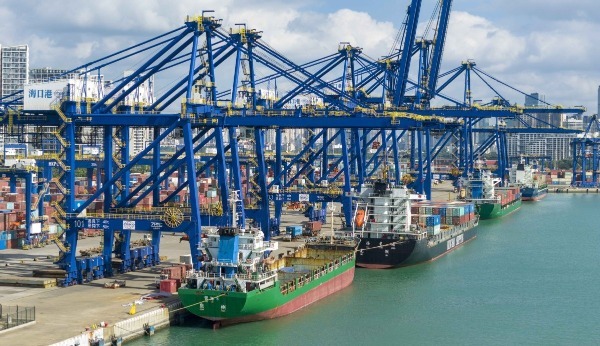China to speed up accession to CPTPP


China will use a variety of channels to engage in multilevel communication and exchanges with all relevant parties in order to speed up its accession to the Comprehensive and Progressive Agreement for Trans-Pacific Partnership, said the Ministry of Commerce on Thursday.
China is fully confident and capable of meeting the high standards set by the CPTPP, said He Yadong, a spokesman for the ministry, during a weekly news conference in Beijing.
Since applying to join the CPTPP, China has communicated and consulted with all members in accordance with the accession process. The Chinese government has conducted a comprehensive, full and in-depth study and evaluation of the agreement's content, said He.
The CPTPP, which took effect in December 2018, is a free trade agreement among 11 countries. The pact's current members are Australia, Brunei, Canada, Chile, Japan, Malaysia, Mexico, New Zealand, Peru, Singapore and Vietnam.
"We have proactively aligned our policies and legislation with the CPTPP rules in relevant areas and are well-prepared for market access offers in goods trade, trade in services and investment," he said, adding the government has carried out reforms and pilot projects in related areas. Its efforts have achieved encouraging results.
For example, China has taken the initiative to exercise pilot programs on par with CPTPP standards in its pilot free trade zones where conditions are mature, as well as at the Hainan Free Trade Port.
To foster a more open, fair and competitive environment for multinational corporations, more efforts will be made by the Chinese government to end practices that hinder fair competition and refine the bidding process, ensuring foreign companies can participate in setting standards and join committees under equitable conditions, according to an action plan released by the General Office of the State Council on Tuesday.
By expanding market access, China will create a number of opportunities for foreign companies, enabling them to venture into previously unexplored markets and broaden their global presence, said Wang Xiaohong, a researcher specializing in cross-border investment at the China Center for International Economic Exchanges in Beijing.
To counter the rising trend of protectionism and trade barriers, China will continue to promote free trade and economic openness. China aims to create a more inclusive and interconnected global trading system that benefits all participants, Wang said.
Ministry of Commerce said China had signed 22 free trade agreements, such as the China-South Korea Free Trade Agreement and the China-Australia Free Trade Agreement, with 29 countries and regions by the end of January, covering about one-third of its total foreign trade volume.
To create more favorable conditions, China has implemented several reform measures to accelerate the industrial transformation of its State-owned enterprises. These reforms aim to foster new economic drivers and upgrade the economic structure, according to the information released by the State-owned Assets Supervision and Administration Commission of the State Council, China's top State assets regulator.
SOEs are also encouraged to collaborate with private businesses across a broad spectrum of areas to achieve mutually beneficial outcomes.







